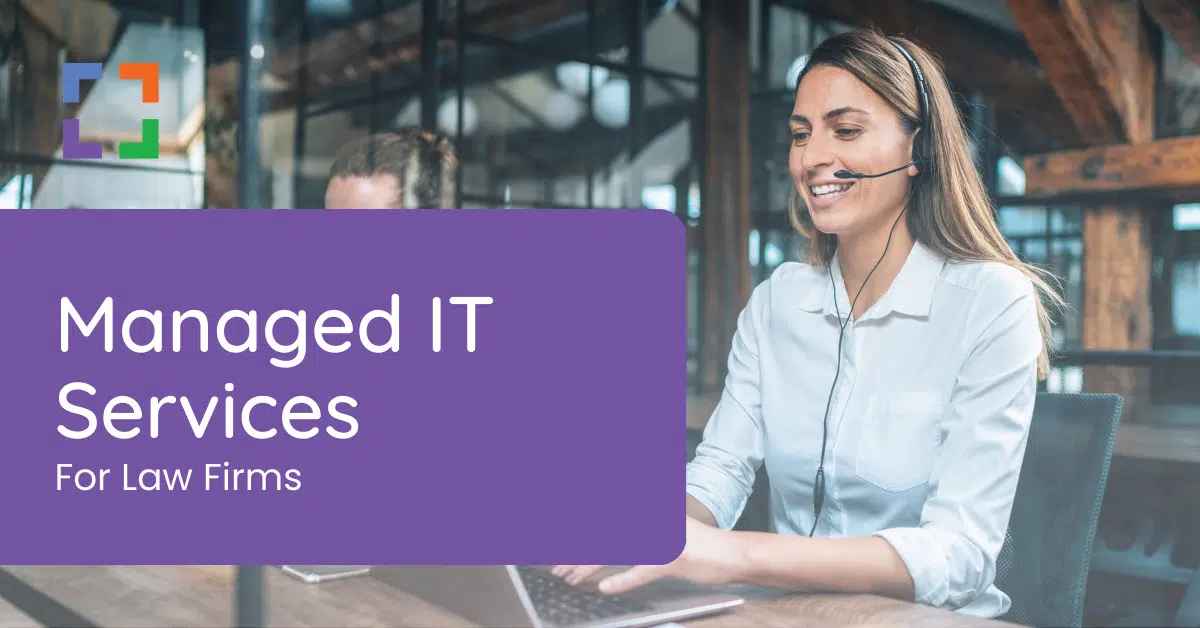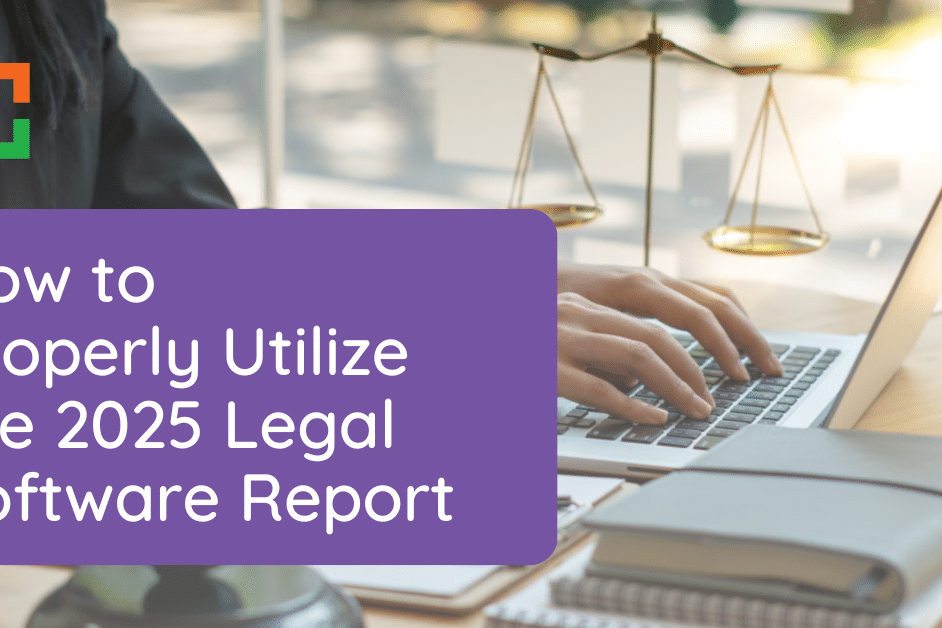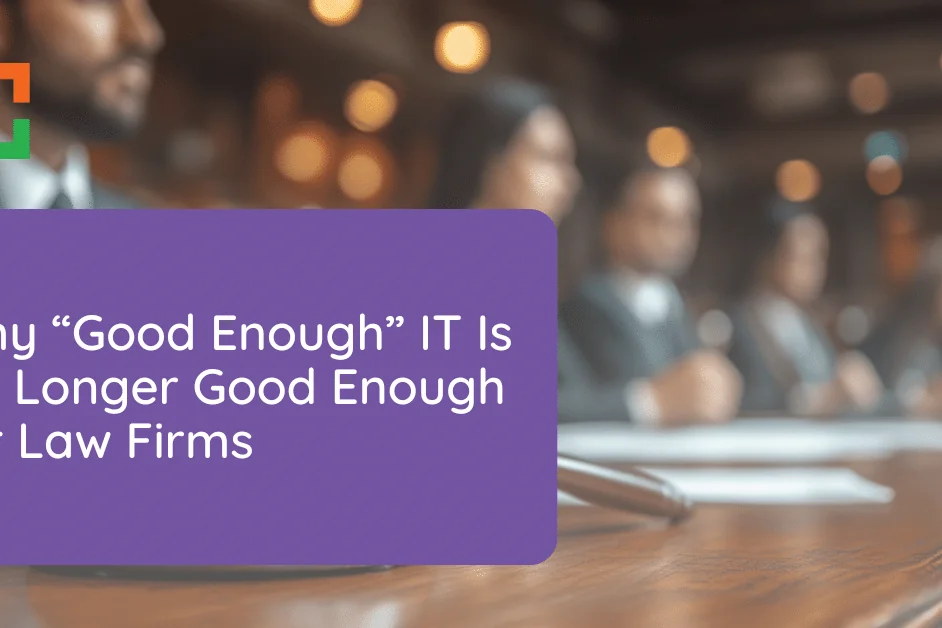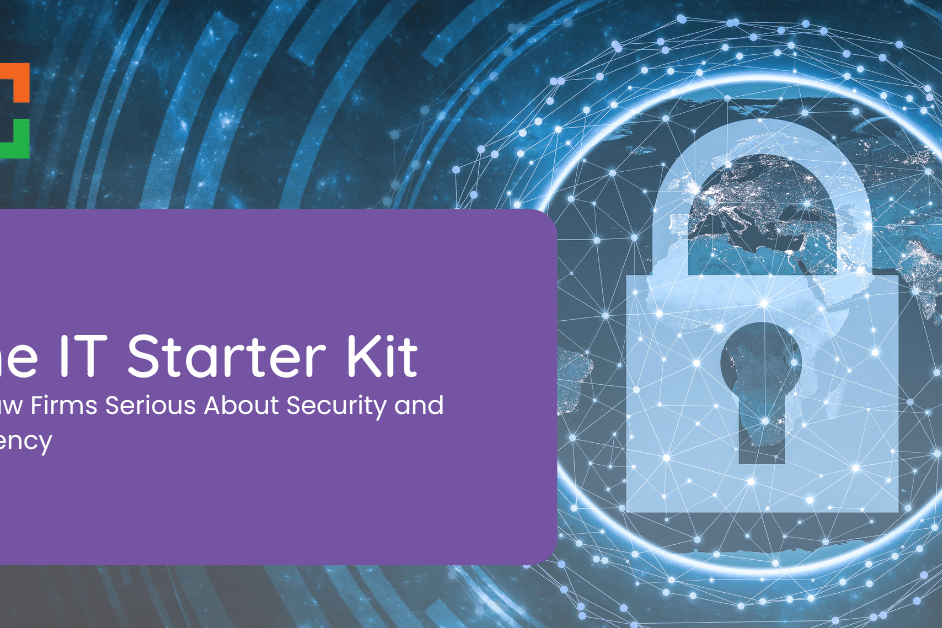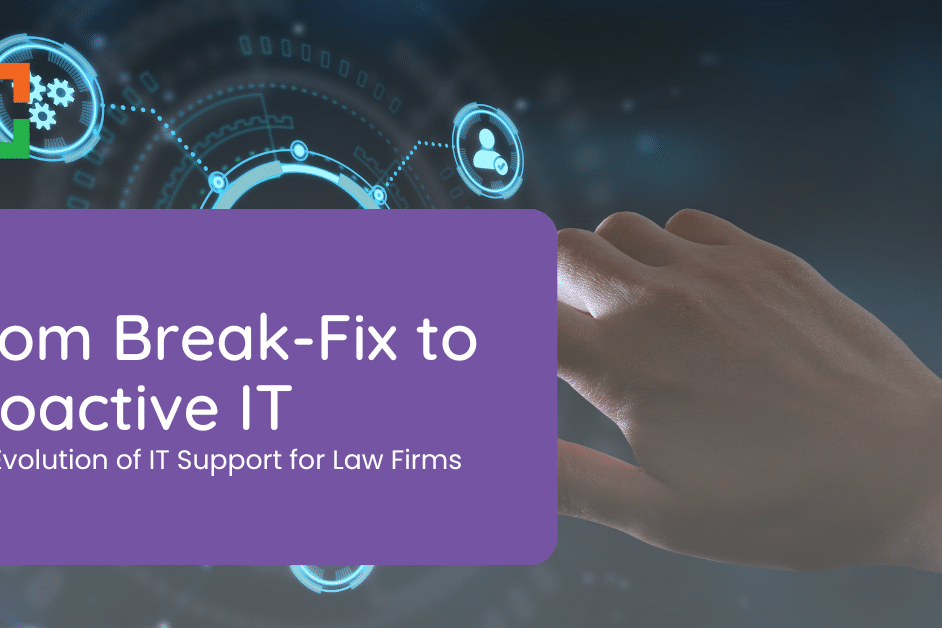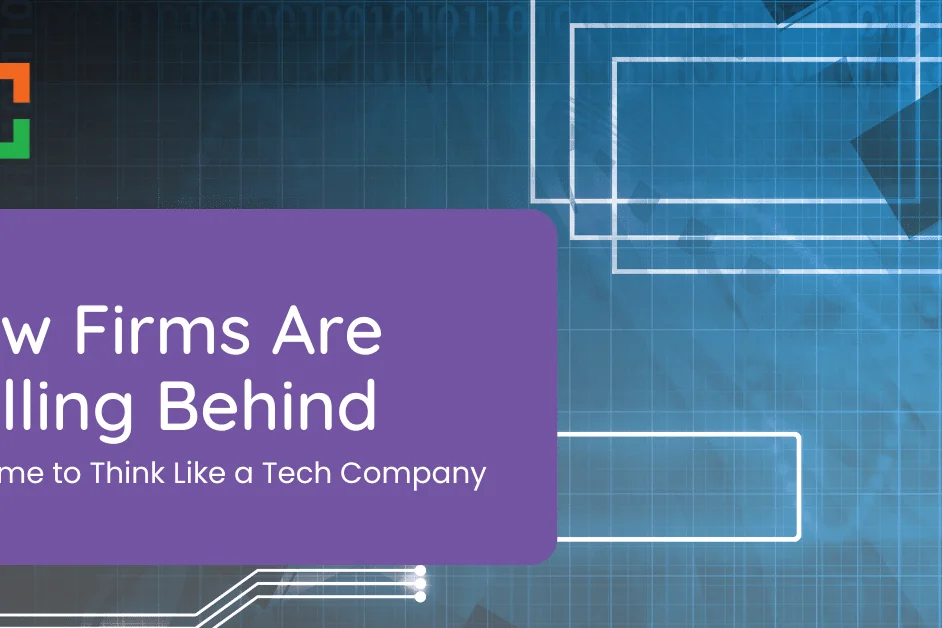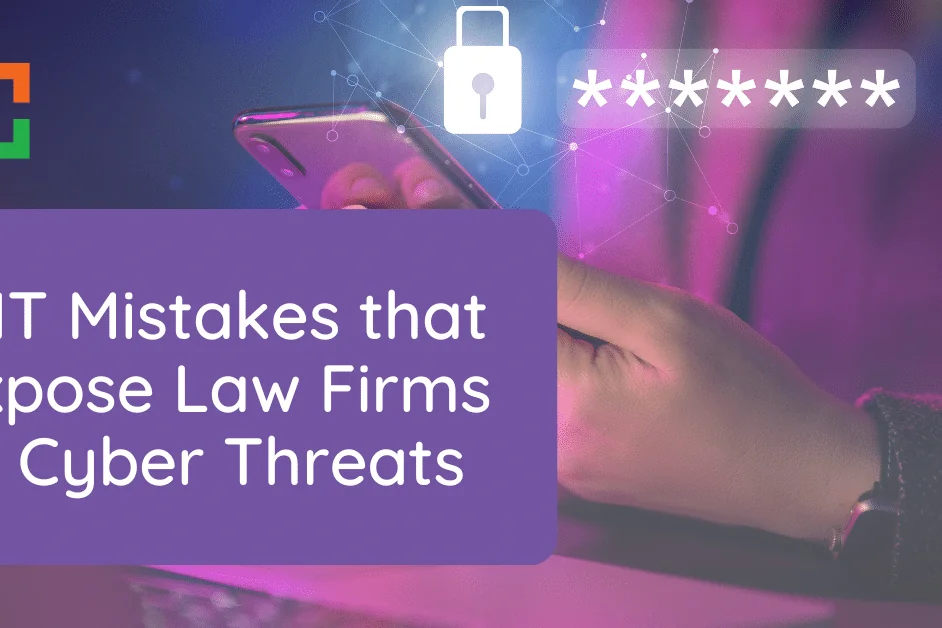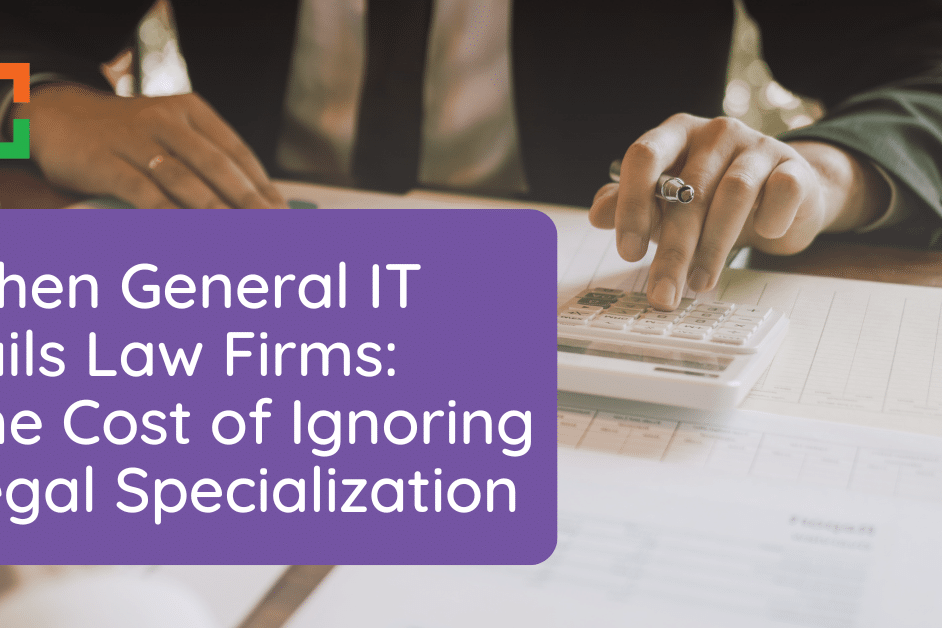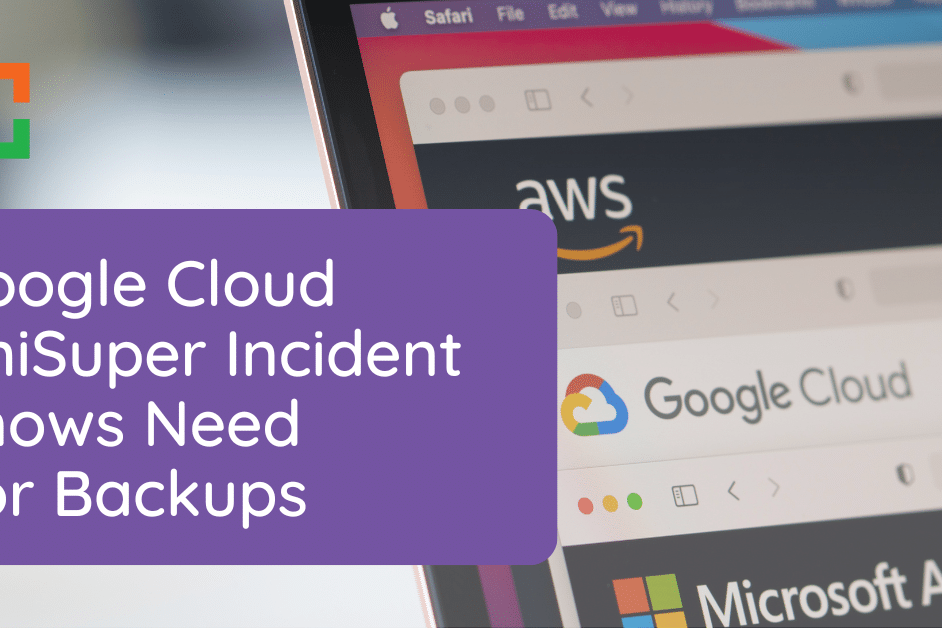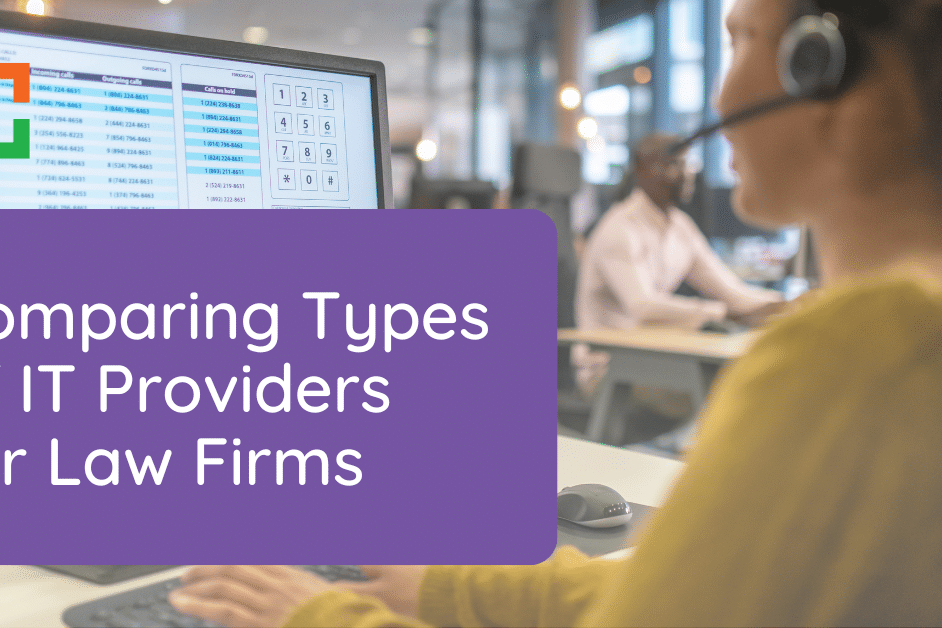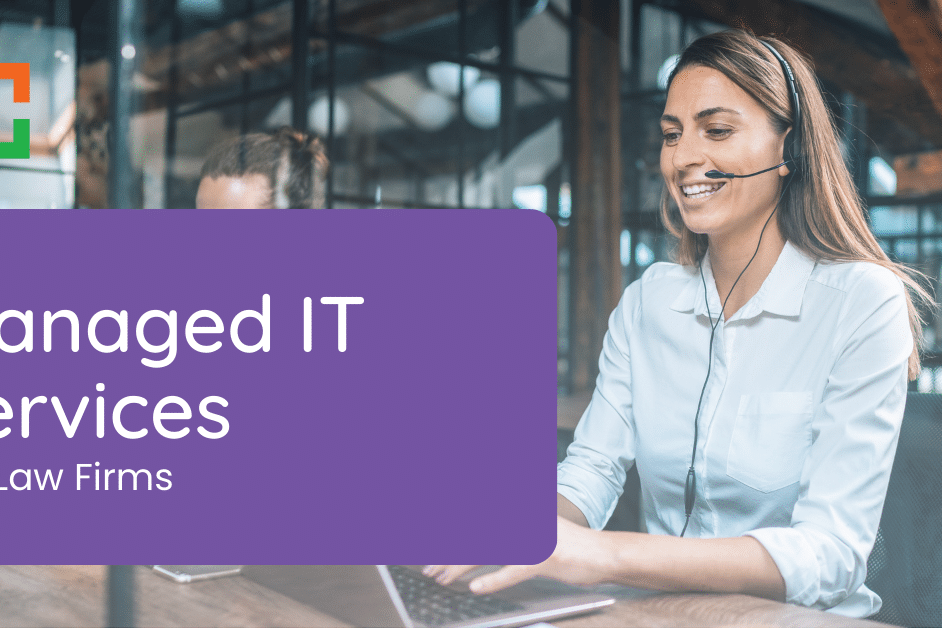Outsourced IT for Law Firms
Outsourced IT for law firms stands at the crossroads of innovation and practicality, offering more than just technological support—it provides an edge in a competitive legal marketplace.
Where legal compliance, data security, and operational efficiency are at the forefront, outsourcing IT tasks to specialized providers isn’t just an option.
It’s becoming a cornerstone of successful law practice management.
This article will dissect integrating outsourced IT services, ensuring your firm can leverage this powerful tool to stay ahead of the curve.
Let’s unlock the potential of outsourced IT and elevate your law firm to its peak operational efficiency. Keep reading to discover how outsourcing can be not just a necessity, but a strategic asset.
Understanding Outsourced IT for Law Firms
In the contemporary legal landscape, where efficiency and innovation are key, understanding the role and scope of Outsourced IT is critical for law firms.
This section aims to demystify the concept of IT outsourcing and illustrate its relevance in the context of modern legal practices.
What is IT Outsourcing?
IT outsourcing involves delegating IT-related tasks and functions to external service providers.
This can range from basic IT support and maintenance to more complex services like cybersecurity, data management, and network administration. Essentially, it’s about tapping into external expertise to handle the technological aspects of running a law firm.
Why Utilize Outsourced IT in Law Firms?
The legal industry is not immune to the digital transformation affecting all sectors.
Law firms are increasingly relying on technology for everything from client communication to case management and document storage.
Outsourced IT allows law firms to access specialized skills and advanced technologies without the need to invest in and manage their own IT infrastructure.
Services Commonly Outsourced by Law Firms
Law firms typically outsource a variety of IT services, including:
- Cybersecurity: Protecting sensitive client data and ensuring compliance with privacy laws.
- Cloud Services: Managing and maintaining cloud-based storage solutions.
- Support and Maintenance: Providing ongoing IT support and system maintenance.
- Network Management: Ensuring robust and reliable network infrastructure.
- Software Development and Customization: Tailoring software solutions to meet specific legal practice needs.
Related – Managed IT Services for Law Firms: Using a Managed IT Service Provider (MSP) has a multitude of benefits. Learn more here.
The Growing Trend of IT Outsourcing in Legal Services
Outsourcing IT functions is not a new concept, but its adoption within the legal sector has accelerated in recent years. This shift is driven by several factors:
- Increasing Complexity of IT: As technology evolves, maintaining an in-house IT team with the requisite expertise becomes challenging and costly.
- Cost Efficiency: Outsourcing can be more cost-effective than maintaining a full-time in-house IT department.
- Focus on Core Business: Outsourcing IT allows law firms to concentrate on their primary objective—providing legal services—without being bogged down by IT management issues.
The Strategic Role of Outsourced IT
For law firms, outsourced IT goes beyond mere technical support; it plays an important role in business growth and service delivery.
By leveraging the expertise of IT professionals, law firms can ensure they are using the most efficient, secure, and effective technology solutions. This not only enhances their service delivery but also provides a competitive edge in a market where clients expect technological savvy and security.
By embracing outsourced IT solutions, law firms can not only streamline their operations but also enhance their capacity to deliver high-quality legal services.
This foundational knowledge sets the stage for a deeper exploration into the advantages, challenges, and selection process of outsourced IT, which will be covered in the following sections of this article.
Would You Rather: Serve Clients or Manage IT?
Use Uptime Practice Next for:
- Unlimited IT Support
- Legal Software Consultation
- Cloud Storage
- Security Protection
- Data Backups
- and More!
Advantages of Outsourced IT for Law Firms
The decision to outsource IT functions can bring a multitude of benefits to a law firm.
This section delves into the key advantages of outsourced IT, demonstrating how it can be a catalyst for efficiency, innovation, and growth in legal practices.
Enhanced Efficiency and Cost Savings
One of the most immediate benefits of outsourcing IT is the potential for increased operational efficiency and cost savings.
By outsourcing, law firms can convert fixed IT costs into variable costs, paying only for the services they need when they need them. This flexibility can lead to significant savings, especially for smaller firms that may not require full-time IT staff.
Typical costs of Managed IT Services: $120-150/User/Month.
For example, take a look at Uptime Practice Next Pricing.
Focus on Core Legal Competencies
Outsourcing IT functions allows law firms to concentrate on their core competencies - practicing law and serving clients.
Relieving the burden of managing complex IT systems enables lawyers and staff to focus on delivering high-quality legal services, fostering client relationships, and growing the practice.
Access to Specialized Expertise
If you choose wisely, you'll find managed IT services that specialized in the legal industry.
As I'm sure you know, the needs of a law firm may differ greatly from other industries. Choosing a generalist IT partner could actually bring harm when they don't understand how to cater to your law firm or how to manage the software or infrastructure that your law firm requires for success.
On the other side, if you do get a legal-centric IT partner, their specialization could make a world's difference.
Improved Security and Compliance
With rising concerns about data breaches and the security of client information, law firms are under increasing pressure to maintain high levels of data security.
Outsourced IT providers bring specialized knowledge of cybersecurity, helping to protect sensitive information from unauthorized access and ensuring compliance with privacy laws and regulations.
Proactive Approach to IT Management
Outsourced IT providers typically offer proactive management of IT infrastructure, identifying and addressing potential issues before they escalate into serious problems.
This proactive approach can result in fewer IT-related disruptions, maintaining the smooth operation of the firm's technological resources.
Reactive IT support, tackling problems as they emerge, often results in operational interruptions and potential data loss for law firms.
On the other hand, proactive IT support aims to prevent issues before they affect the firm, ensuring consistent, seamless service and improved system health overall.
Scalability and Flexibility
As a law firm grows, its IT needs will change. Outsourced IT services offer scalability, providing the flexibility to scale up or down as required.
This adaptability is crucial for law firms that experience fluctuations in caseload or are undergoing periods of growth or restructuring.
Access to Advanced Technologies
Outsourced IT firms often have access to superior technology and tools that may be cost-prohibitive for individual firms to acquire.
By partnering with these providers, law firms can leverage these advanced technologies without the hefty investment typically required to procure and maintain them.
You can also learn how to move away from outdated technology, like owning and managing your own servers—a true headache for law firms that becomes a heavier burden with time.
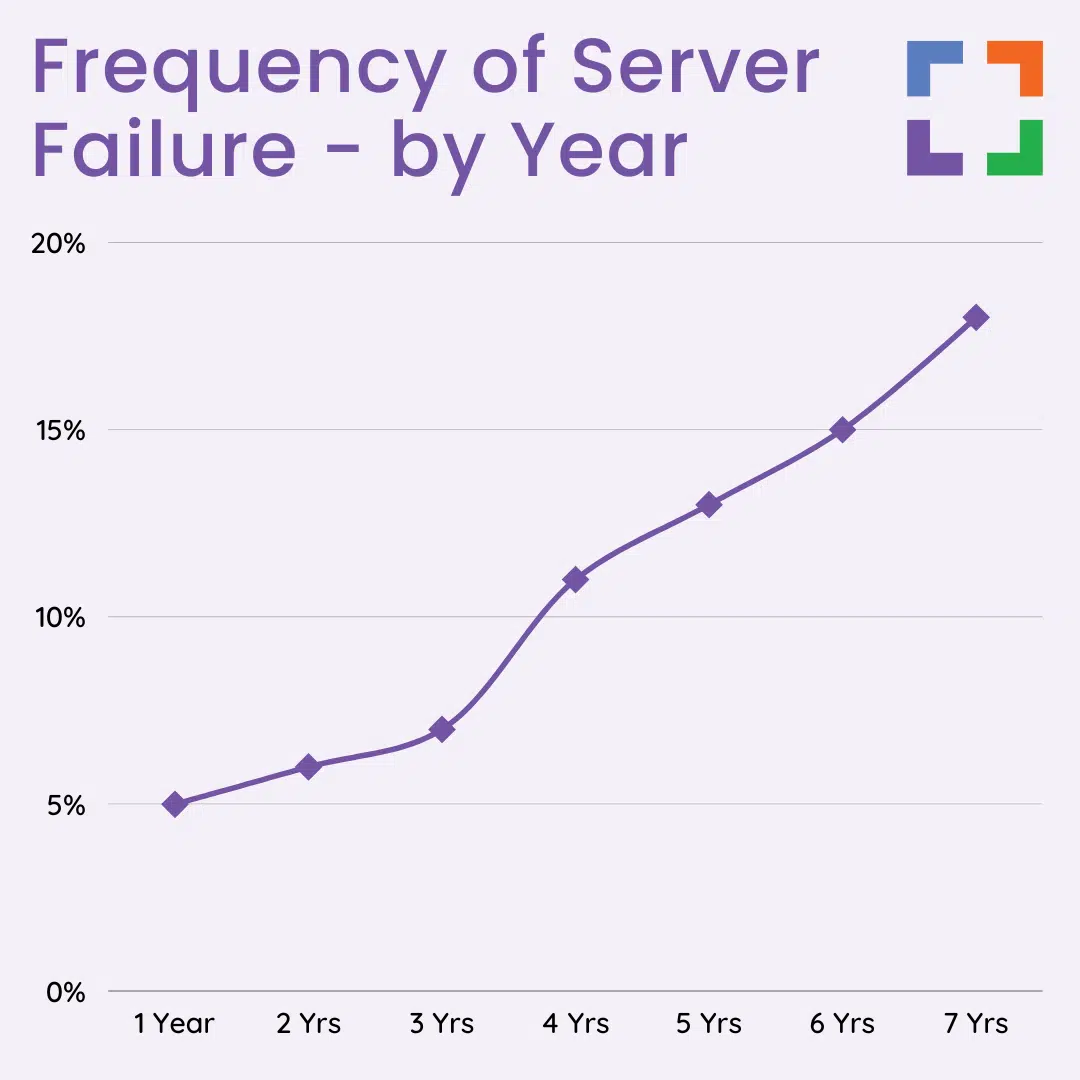
The advantages of outsourced IT for law firms are clear and multifaceted.
From cost savings and access to specialized expertise to improved security and enhanced operational efficiency, the strategic outsourcing of IT functions can significantly contribute to the success and growth of a legal practice.
These benefits set the stage for law firms to not only excel in their current operations but also strategically position themselves for future challenges and opportunities in the legal sector.
Stay Ahead of the Curve and Focus on Legal Work
Use Uptime Practice Next for:
- Desktop Management
- Automated Software Updates
- Easier Collaboration
- Tailored Software Setup
- Technology Procurement
- Unlimited Support
Overcoming Challenges in Outsourced IT for Law Firms
While the benefits of outsourced IT are substantial, law firms also face certain challenges when adopting this model.
This section addresses these challenges and provides strategies to mitigate them, ensuring a smooth and beneficial outsourcing experience.
Challenge: Maintaining Quality of Service
The quality and reliability of IT services are crucial for the uninterrupted operation of a law firm.
Dependence on external providers may raise concerns about service quality and response times.
Strategies for Mitigation:
- Establish clear service level agreements (SLAs) defining expectations and response times.
- Conduct regular performance reviews and maintain open communication with the provider.
- Have contingency plans in place for critical IT functions.
Challenge: Effective Communication and Collaboration
Effective communication between the law firm and the IT provider is essential for a successful partnership.
Miscommunications can lead to unmet expectations or delays in service delivery.
Strategies for Mitigation:
- Establish clear lines of communication and regular check-ins.
- Assign internal staff to liaise with the IT provider to ensure continuity.
- Utilize collaborative tools and platforms for seamless interaction.
Challenge: Ensuring Data Security and Client Confidentiality
The legal industry handles sensitive client information, making data security a top priority.
Outsourcing IT functions can raise concerns about data breaches and loss of control over confidential information.
Strategies for Mitigation:
- Choose IT providers with a strong track record in handling sensitive data.
- Ensure that the provider complies with industry-specific regulations and standards.
- Regularly review and update security protocols and agreements with the IT provider.
Security & Compliance are Non-Negotiable for Law Firms
With Uptime Practice Next, get:
- Multi-Factor Authentication
- Email Encryption
- Compliant Backups
- Desktop Protection
- Ransomware Protection
- and More!
Challenge: Managing Change and Staff Adaptation
Implementing new technologies and changing providers can lead to a period of adjustment for the staff. Ensuring a smooth transition is vital to maintain productivity.
Strategies for Mitigation:
- Provide training and support to staff during the transition.
- Engage staff early in the decision-making process to address concerns.
- Gradually phase in new technologies and practices.
Challenge: Balancing Cost and Value
While outsourcing can be cost-effective, it's essential to balance cost-saving measures with the value of services received.
Opting for the cheapest provider may lead to subpar services.
Strategies for Mitigation:
- Evaluate the cost-benefit ratio, not just the bottom line.
- Consider the value of specialized expertise and advanced technology.
- Periodically review and assess the ROI of the IT services.
By proactively addressing these challenges, law firms can maximize the benefits of outsourced IT.
Effective planning, clear communication, and a strategic approach to selecting and managing IT providers are key to overcoming potential obstacles.
This proactive stance enables law firms to leverage outsourced IT as a powerful tool for growth and innovation.

Selecting the Right IT Outsourcing Partner
Choosing the right IT outsourcing partner is a big part for law firms to ensure they receive the best possible service that aligns with their specific needs and goals.
This section outlines a step-by-step process to guide law firms in making this critical decision.
1
Understand Your Firm's IT Needs
Before beginning the search for an IT partner, it’s important to have a clear understanding of your firm’s specific IT needs.
Assess the current IT infrastructure, identify areas that require improvement, and outline the goals you wish to achieve through outsourcing.
2
Research Potential IT Providers
Start by researching potential IT outsourcing providers.
Look for providers with experience in the legal sector, as they will have a better understanding of the unique needs and challenges of law firms.
Check their credentials, client testimonials, and case studies.
3
Evaluate Their Expertise and Services
Examine the expertise and range of services offered by the providers.
Ensure they can offer not just the services you currently need, but also those you may require in the future.
This includes cybersecurity, cloud services, data management, and IT support.
4
Check Compliance and Security Standards
Given the sensitivity of legal work, it’s vital that your IT partner has robust security measures in place.
Ensure they comply with relevant legal industry standards and data protection regulations.
Ask about their security protocols and data handling procedures.
5
Assess Communication and Support Structures
Effective communication is key to any successful partnership.
Evaluate the provider’s communication channels and support structures.
Understand how they handle IT issues, their response times, and their process for regular updates and reporting.
6
Review Service Level Agreements (SLAs)
Carefully review the SLAs to understand the terms of service, including response times, uptime guarantees, and other key performance indicators.
SLAs should align with your firm’s expectations and requirements.
7
Consider Scalability and Flexibility
The IT needs of your firm are likely to evolve over time.
Choose a partner who can scale and adapt their services to match your firm’s growth and changing needs.
This flexibility is crucial for long-term collaboration.
8
Request Proposals and Conduct Interviews
Once you have shortlisted potential providers, request detailed proposals from them.
These proposals should outline their approach to meeting your firm’s needs.
Conduct interviews or meetings to discuss these proposals and get a sense of the provider’s approach and compatibility with your firm.
9
Check References and Past Performance
Ask for references from the provider’s current or past legal clients.
Reach out to these references to gain insights into the provider’s performance, reliability, and the quality of their customer service.
10
Make a Decision and Establish a Partnership
After thorough evaluation, choose the IT provider that best fits your firm’s needs and goals.
Establish clear expectations and open lines of communication as you embark on this partnership.
By following these steps, law firms can make an informed decision in selecting an IT outsourcing partner.
This careful and deliberate approach ensures that the chosen partner will not only meet the current IT needs but also contribute positively to the firm’s long-term success and innovation in legal services.

Uptime Practice was a true miracle when the pandemic struck. We moved to Uptime Practice and were working immediately.
Todd Tracy – The Tracy Law Group, PLLC
Frequently Asked Questions: Outsourced IT for Law Firms
Outsourced IT refers to the practice of law firms delegating their IT-related tasks and functions to external, specialized service providers. This includes cybersecurity, network management, software development, and IT support.
Law firms should consider outsourcing IT to gain access to specialized expertise, reduce operational costs, enhance data security, and allow lawyers to focus on core legal services instead of IT management.
The primary risks include potential data security issues, loss of control over IT functions, and challenges in maintaining quality and consistency of service. However, these can be mitigated through careful provider selection and clear service agreements.
Select a partner with experience in the legal sector, strong references, and compliance with relevant security standards. Assess their communication protocols, service offerings, and flexibility to meet your firm’s needs.
Yes, outsourcing IT to providers specializing in cybersecurity can significantly enhance your firm’s data security and compliance with legal industry regulations.
Law firms can also outsource functions like administrative tasks, marketing, legal research, human resources, and financial management.
Outsourcing helps improve efficiency by streamlining processes, reducing workload on in-house staff, and ensuring tasks are handled by specialized professionals.
Yes, outsourcing is particularly beneficial for small or solo practices as it provides access to expert services and technologies without the need for significant investment in in-house resources.
Uptime Practice:
The IT & Cloud Platform for Law Firms.
Uptime Practice is a suite of Managed IT and cloud services, made exclusively for law firms.
Practice Next
Technology + Legal Software Support for Modern Law Firms
Practice Next is a suite of Managed IT, Legal Software Support, and Cloud Essentials, made just for law firms.
-
Practice Next is a suite managed IT, technology essentials and legal software support.
-
Practice Next includes unlimited IT and legal software support, Microsoft 365, legal-centric cloud storage and more.
-
Practice Next pairs great with cloud-based legal software such as Clio Manage, CosmoLex, MyCase and more.
Practice Go
Cloudify Your Legal App
Does your law firm already have a cloud strategy, but have one premise-based application still running on onsite servers? Practice Go is for you.
- With Practice Go, we effectively turn your desktop/server- based legal software into a cloud application (a Published App), freeing your firm from the limitations of traditional software.
- Practice Go can cloudify your PCLaw, Time Matters, Tabs3, ProLaw, Juris, QuickBooks and more.
Practice Foundation
Complete Private Cloud for Law Firms
If your law firm needs a central, secure cloud platform for all of your legal software, documents and data, Practice Foundation is for you.
-
Practice Foundation is an end-to-end cloud platform that will host all of your firm's applications and documents, and will optionally include Office 365 + unlimited IT support. Everyone in your firm logs into a Virtual Desktop where they'll find all of their apps and docs.
-
Practice Foundation works with PCLaw, Time Matters, Tabs3, ProLaw, Juris, QuickBooks, Timeslips, TrialWorks, Adobe Acrobat and more.
Not Sure Which Edition You Need?
No problem. Check out our quick Comparison Chart for Uptime Practice, or Get in Touch to talk with our sales team.

Dennis Dimka
As the founder and CEO of Uptime Legal Systems, I've had the privilege of guiding our company to become a leading provider of technology services for law firms.
Our growth, both organic and through strategic acquisitions, has enabled us to offer a diverse range of services, tailored to the evolving needs of the legal industry.
Being recognized as an Ernst & Young Entrepreneur of the Year Finalist and seeing Uptime Legal ranked among the Inc. 5000 list of fastest-growing private companies in America for eight consecutive years are testaments to our team's dedication.
At Uptime Legal, we strive to continuously innovate and adapt in the rapidly evolving legal tech landscape, ensuring that law firms have access to the most advanced and reliable technology solutions.
Related Posts
September 16, 2025
How to Properly Utilize the 2025 Legal Software Report
January 20, 2025
5 IT Mistakes that Expose Law Firms to Cyber Threats
September 30, 2024
How to Properly Utilize the 2024 Legal Software Report
September 26, 2024
Outsourced but Onshore: Navigating Law Firm IT Regulations
June 27, 2024
The Impact of Remote Work on Law Firm IT
May 29, 2024
The Real Value of Legal Specialty in IT Services
April 24, 2024
Comparing Types of IT Providers for Law Firms
March 13, 2024
Law Firm Collaboration Software
February 28, 2024
Law Firm Disaster Recovery and Business Continuity Planning
February 22, 2024
Types of IT Services for Law Firms
February 8, 2024
Legal Data Management & Storage Solutions for Law Firms
February 1, 2024
How to Choose the Right IT Provider – A Guide for Law Firms
January 9, 2024
VoIP for Law Firms
December 15, 2023
Cybersecurity for Law Firms
December 8, 2023
Managed Cloud Services for Law firms
November 9, 2023
Managed IT Services for Law Firms
October 11, 2023
IT Support for Law Firms
August 30, 2023
Microsoft Teams for Law Firms
March 8, 2023
What is Legal Document Management?
December 22, 2022
Interpreting the 2022 Legal Trends Report
June 17, 2019
Law Firm IT – What Are Your Options?
June 10, 2019

